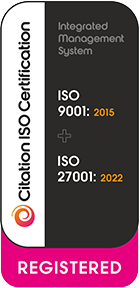You are not alone when it comes to addiction – alcohol addiction affects millions of people worldwide. We are here to get you the support that you need to overcome the challenge of addiction.
At Rehubs, we prioritise convenience, and we want you to still be able to enjoy the experiences of life whilst also recovering.
We do not want you to miss out on any more memories than you need to – so that is why our programme is so flexible and you can access it whenever is best for you.
Binge drinking and alcoholism are both known for their link towards addiction, but knowing the key differences – and similarities – between the two is key, and can help you get the support you need.
So, what is binge drinking, and is it the same as alcoholism? Let’s take a look at their differences and similarities, and the best treatment options for alcohol issues.
Whether you’re struggling with binge drinking or you’re dealing with severe alcohol dependence, we will provide you with the valuable information that you need to start your journey. Recovery is possible, no matter what.
What is Binge Drinking?
Binge drinking refers to drinking large amounts of alcohol in a short period of time to get drunk. Doing this regularly can lead to dependence and addiction. But don’t worry – at Rehubs, we are here to help should this happen. We will help you to join the path to recovery.
The National Institute on Alcohol Abuse and Alcoholism (NIAAA) defines binge drinking as drinking enough alcohol to reach a BAC of 0.08 within about two hours.
For most people, this level of alcohol is around five drinks for men, and four drinks for women – within the space of two hours.
But what are the signs of binge drinking? Let’s take a look:
- Drinking excessive amounts of alcohol in a short period
- Frequent episodes of heavy drinking
- Drinking until blackout or loss of memory
- Engaging in risky behaviours while intoxicated
You don’t have to drink every day to be a ‘binge drinker’. You can go all week without drinking, and then consume a large amount of alcohol over the weekend.
What is Alcoholism?
Alcoholism, also known as alcohol use disorder, is a chronic health problem. With alcoholism, you may be unable to control your drinking despite the negative consequences.
Unlike binge drinking, alcoholism is a long-term condition that can have consequences on all aspects of your life. It can impact your relationships, finances, physical health, mental health, and your overall well-being.
Some signs of alcohol addiction may include:
- Drinking excessively despite negative consequences
- Inability to limit alcohol consumption
- Prioritising drinking over responsibilities and relationships
- Developing a tolerance, needing more alcohol to feel the same effects
- Experiencing withdrawal symptoms when not drinking
- Hiding or lying about drinking habits
- Spending a lot of time obtaining, using, or recovering from alcohol
- Neglecting hobbies and activities you once enjoyed
- Continuing to drink despite knowing it’s causing physical or mental health issues
- Failed attempts to cut down or stop drinking
People with alcoholism may experience withdrawal symptoms when they stop drinking. Withdrawal symptoms can range from mild to severe – and typically begin within hours to a few days after the last drink.
Some common alcohol withdrawal symptoms include:
- Tremors
- Sweating
- Anxiety
- Nausea
- Vomiting
- Insomnia
- Agitation
If you have a dependence on alcohol and find you experience withdrawals when you stop drinking, then it is important that you seek professional help and don’t try to fix it on your own.
Detoxing without medical support or going ‘cold turkey’ can be dangerous and cause life-threatening side effects.
With the help of Rehubs, you will be able to safely detox from alcohol in the comfort of your own home in the correct way that will help you maintain abstinence.
What Are The Differences Between Binge Drinking and Alcoholism?
So, now you understand the basics of alcoholism and binge drinking, let’s explore the key differences between the two:
Pattern of Drinking – Binge drinking is when you consume a large amount of alcohol in a short space of time, typically within two hours. Alcoholism, on the other hand, is a chronic condition characterised by compulsive alcohol use over an extended period, whether it be months or years.
Control Over Drinking – Binge drinkers may have more control over their drinking – and may not drink excessively on a regular basis. However, those with alcoholism tend to struggle to control their drinking – and may continue to drink despite negative consequences.
Health Consequences – Both binge drinking and alcoholism can have negative health effects. However, alcoholism typically leads to more severe long-term consequences. Chronic and regular alcohol abuse can lead to liver disease, heart disease, high blood pressure, and other serious health problems.
What Are The Similarities Between Binge Drinking and Alcoholism?
Although binge drinking and alcoholism refer to two separate issues regarding alcohol, they share several similarities, such as:
Risk of Addiction – While alcoholism refers to addiction, binge drinking can lead to addiction over time. Binge drinking and chronic alcohol use can increase the risk of addiction and dependence.
Negative Consequences – Both binge drinking and alcoholism can have negative consequences on your physical health, mental health, and social relationships. Some of these consequences may include liver damage, high blood pressure, depression, anxiety, and problems with work or school.
Treatment – Although the treatment approaches for binge drinking and alcoholism may differ slightly, both often require professional support to address the underlying issues and develop healthier coping strategies.
Treatment Options for Alcoholism and Binge Drinking
Now we’ve outlined the definitions, differences and similarities of alcohol addiction and binge drinking, let’s explore what treatment for alcohol use disorder looks like.
Treatment options for alcoholism and binge drinking may vary depending on your own needs and circumstances. However, treatment typically begins with a detox and then consists of therapy, counselling, and ongoing support.
Detoxification
The first step is stopping drinking, giving your body a chance to recover. In some cases, you may be given detox medication to ease the withdrawal symptoms.
You may be prescribed detox medications such as naltrexone or acamprosate to help reduce cravings and support recovery from alcoholism. Professional support is important when detoxing from alcohol, especially if you have a severe dependence.
Counselling and Therapy
When you have cleansed your body of alcohol and the withdrawal symptoms have begun to ease, you may begin counselling and therapy.
Therapy, including cognitive-behavioural therapy (CBT) and motivational interviewing, can help you address any underlying issues related to your alcohol use. It can also help to build your confidence and teach you effective coping strategies for managing cravings and avoiding relapse.
You can undergo therapy online or in person. There are options out there for you, whatever your preferences or circumstances.
Aftercare
Aftercare can help to keep you on track. This could consist of ongoing therapy and counselling, whether it be online, in-person, or over the phone. Many people find support groups such as Alcoholics Anonymous (AA) helpful too, as these groups provide peer support and encouragement.
Lifestyle changes are also important when recovering from addiction or binge drinking. Consider making positive changes to your diet and exercise habits, and begin incorporating stress management techniques into your daily routine. This can help to support your recovery and reduce the risk of relapse.
Binge Drinking Vs Alcoholism: Key Takeaways
- Binge drinking is defined as consuming a large amount of alcohol in a short period of time, typically resulting in a BAC of 0.08 grams of alcohol per deciliter or higher.
- Alcoholism, or alcohol use disorder, is a chronic condition characterised by compulsive alcohol use despite negative consequences.
- While binge drinking and alcoholism have some similarities, including the risk of addiction and negative health consequences, they differ in terms of drinking patterns, control over drinking, and long-term health effects.
- Treatment options for alcoholism and binge drinking may include detoxification, counselling and therapy, medication, support groups, and lifestyle changes.
Get Help Today With Rehubs
Let’s stop the cycle of alcohol addiction today and together we can beat addiction. Our online programs will give you all the necessary resources and support you need to help you overcome your addiction.
From 1-1 sessions to support group chats where you are able to get in touch with others suffering from the same addiction and support each other to stay on track and talk about how you feel.
Our online alcohol treatment platform is convenient – we can offer you support from the comfort of your own home. We offer therapy sessions at times that suit you, so if you work a 9-5 job, you can still receive the support you need.
At Rehubs, we bring affordable, accessible, and proven solutions to help you overcome your addiction and embrace a new, sober life. There’s a reason why 213/269 people rated the quality of our aftercare program 5 stars!
So, if you want to get started and break free from the grips of addiction, complete a free consultation with Rehubs today.







